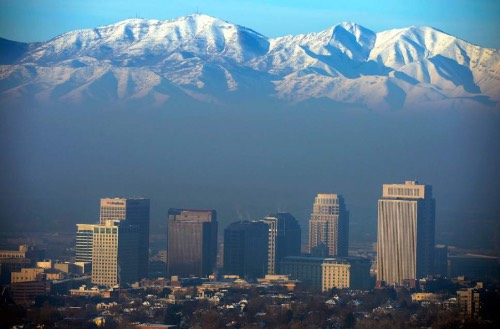Air Quality
 Pollutants in the atmosphere lead to adverse air quality. To help policymakers and
society in general devise effective means to improve air quality, knowledge of meteorology,
emission strengths, and chemistry is required.
Pollutants in the atmosphere lead to adverse air quality. To help policymakers and
society in general devise effective means to improve air quality, knowledge of meteorology,
emission strengths, and chemistry is required.
Despite significant advances in improving air quality, human society continues to face challenges arising from cross-border transport of pollutants, wildfire emissions, increased exposure by expanding urban populations, and mounting medical evidence pointing to adverse health effects due to exposure to various pollutants. Knowledge of atmospheric science is critical for devising effective policy in order to improve air quality, mitigate exposure, and predict the impacts of climate change on future air quality.
The Department of Atmospheric Sciences has multiple researchers and labs that contribute to furthering research in regards to Air Quality. Click on the links below to learn more about specific groups and projects happening in the department.
